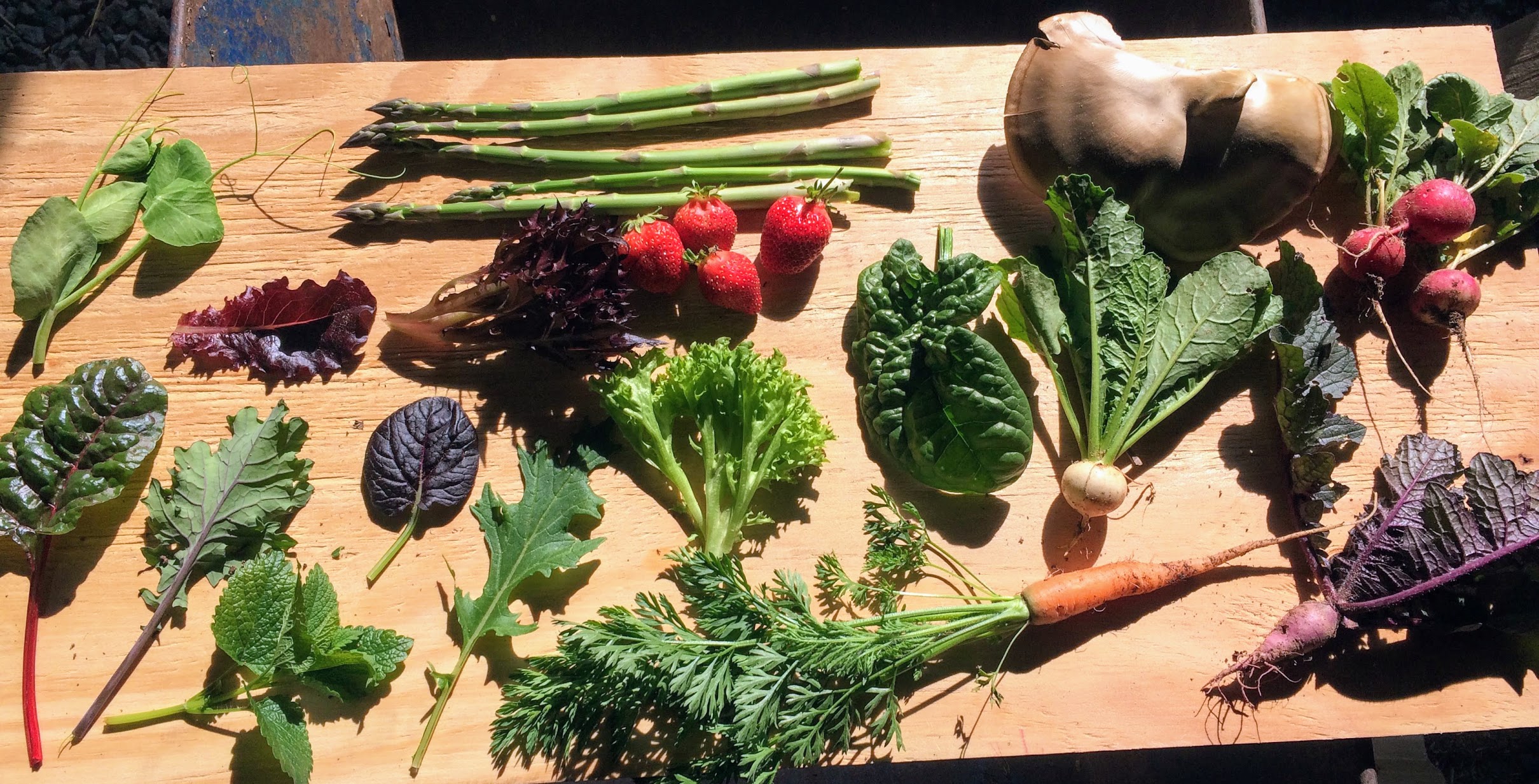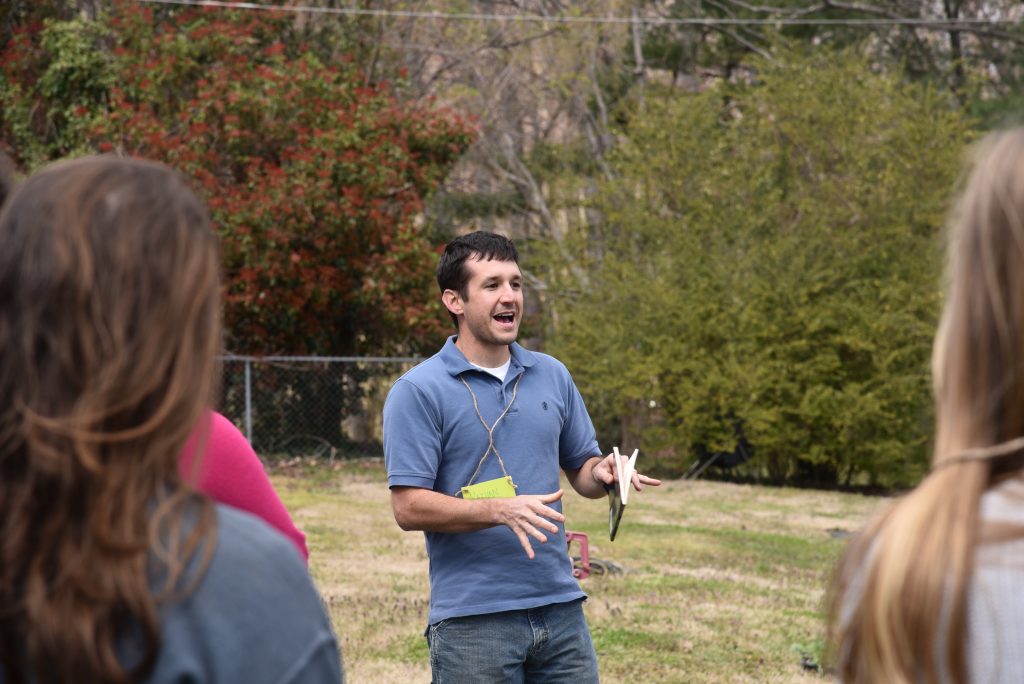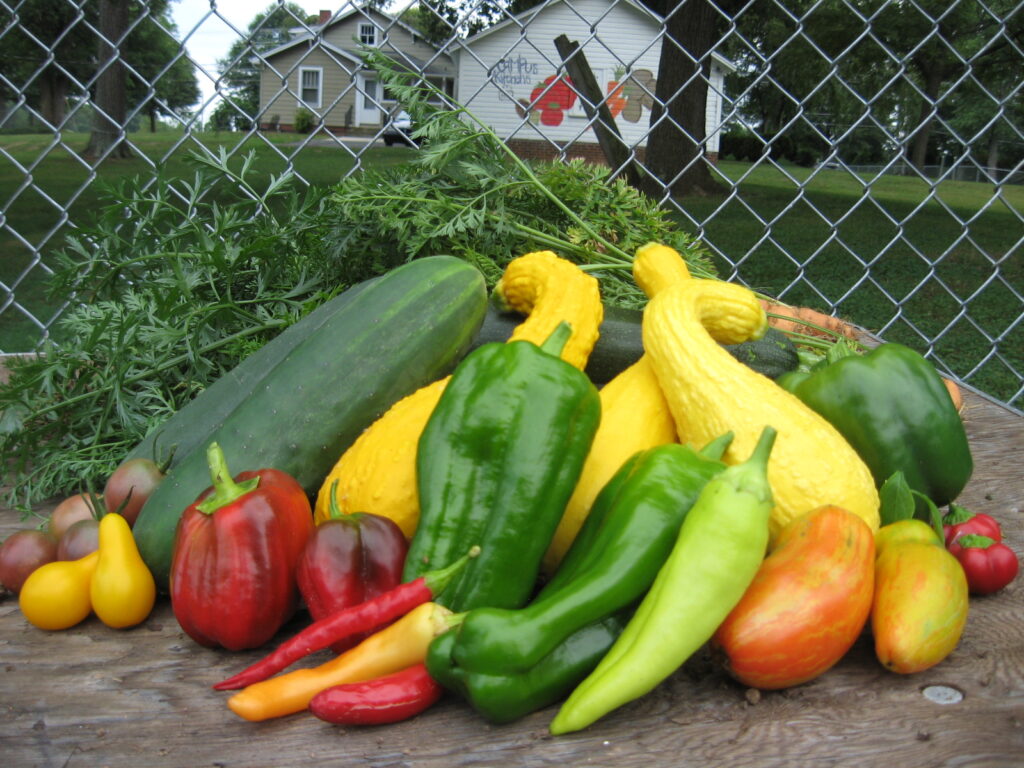Eating for Environmental Wellness

by Nathan Peifer, M.Div. ’13
Campus Garden Manager, Campus as a Lab Pilot Manager
The first time I tried to grow a garden, I learned a fundamental lesson: food is a gift from the Earth. Land, water, and air, those things we call the “environment,” are the foundation of our existence. The makings of my daily meals do not come from the grocery store (an absolute revelation to my suburban American mind!).
In fact, my daily sustenance depends on orange groves in Okeechobee and orchardists in Brazil, Ethiopian rainfall and aquifers in Arizona, a harvest of grain from the soils of the Heartland and the health of a dairy cow in Duluth. And if you’re a caffeine addict like I am, you may be interested to learn about the social and environmental complexities of the coffee trade. My first attempt to produce food from the Earth opened my eyes to the reality that eating is an environmental act. (With a nod of respect to Wendell Berry who first said, “eating is an agricultural act.”)

Our diets have a direct impact on the environment. Compare, for instance, the head of lettuce grown in California to the head of lettuce grown in Forsyth County. One requires large amounts of fossil fuel for refrigeration and shipping to arrive on our plates, while the other can be picked up at the farmers’ market or harvested from the backyard. Reducing the carbon footprint of our meals by eating locally, eating less meat, growing and purchasing organic produce, and diverting food waste from landfills helps sustain our environment and also positively impacts our personal health. As it turns out, the wellbeing of our bodies and the wellbeing of the earth are inextricably linked by food.

You can begin to explore the relationship between your diet and the environment by growing food for yourself in the Campus Garden. The hands-on experience of transforming a seed into a salad provides meaningful insight into our profound dependence on this Earth. Campus Garden volunteer hours are hosted every Wednesday and Sunday from 4:00 – 6:00 pm. In fact, the four carbon-reducing solutions mentioned in the paragraph above are represented by initiatives here on campus. You can get involved by exploring these links: Compost Crew, Plant-Forward Dining, Campus Kitchen.
Eat well!
